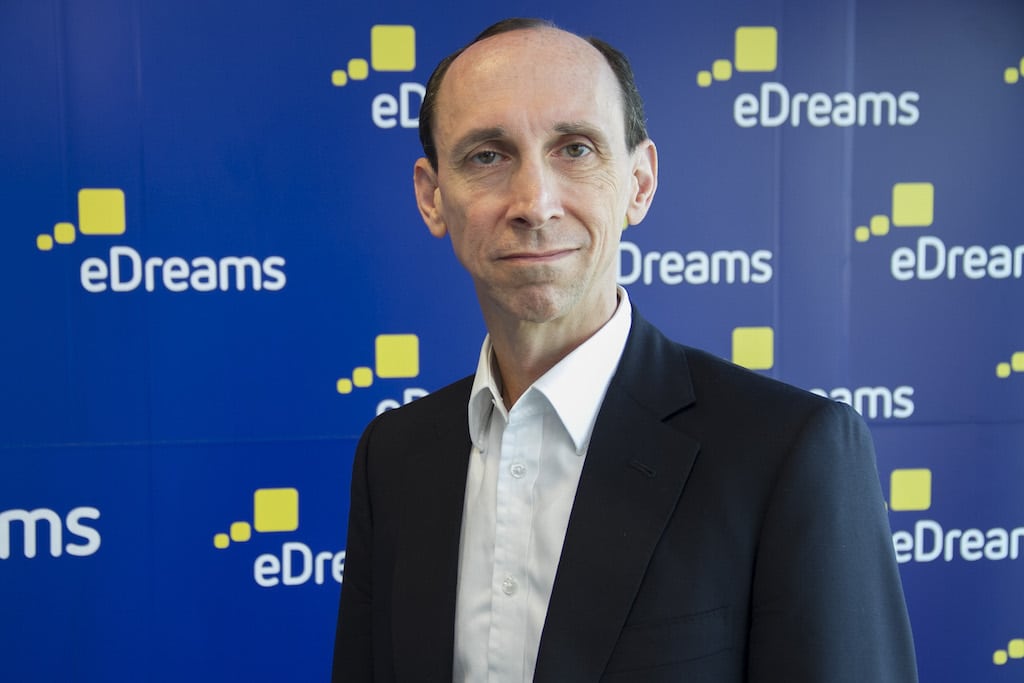eDreams Odigeo Looks to a Future With More Transparency

Skift Take
European online travel agency group eDreams Odigeo is hoping that its move away from flight ticket sales will pay off in the long term – even if this means taking a short term hit.
Adjusted earnings fell 3 percent to $30.5 million (€26.1 million) in its first quarter, which ended June 30. The company attributed the decline to investing “in the shift in the revenue model.”
These adjusted earnings strip out a significant one-off restructuring charge of $14.4 million (€12.3 million) from the June quarter in 2017.
Revenue in the quarter grew 9 percent to $160.9 million (€137.4 million).
One of the biggest changes Barcelona-based eDreams is making to its business is in what it calls price transparency. Over the years the company attracted a lot of criticism for its additional charges tacked on to headline rates,or initial search results. Eventually pressure from consumers and authorities led to changes but it has come at a financial cost.
“In fiscal year 2019, we will continue to invest and accelerate the strategic shift in our revenue model, including increased price transparency display in some countries. We expect this strategy to adversely affect our performance in the short term, but to improve our strategic position and long-term value, both for customers and shareholders,” the company said in its outlook.
On a conference call with investors, CEO Dana Dunne declined to elaborate on which countries would be getting price transparency.
New Revenue Streams
Airline ticket sales are not as attractive as they once were thanks to their low margins, meaning that companies like eDreams Odigeo have had to look for additional revenue streams. eDreams Odigeo had argued in the past that it could build a viable flights business in part because of what it characterized as its superior technology.
The change, though, has meant branching out into ancillary flight products such as free cancellation and dynamic packaging, where consumers can bundle flights with a hotel and/or car rental. These additional products are gradually becoming a bigger part of eDreams Odigeo’s business.
“Our performance in Q1 was driven by a slight increase in bookings at 1 percent up year-on-year. And saw a growth in our revenue margin, up 7 percent year-on-year. This is driven by very strong performance of flight ancillaries and dynamic packages revenue,” Dunne said.
Acquisition Update
eDreams' focus on organic growth doesn't mean that the company would turn down the opportunity to do a deal, but it would have to offer more than just market share.
"We would favor those potential acquisitions where we can acquire business and software or a mix of business of software and business processes as it was the case with BudgetPlaces [bought in 2017], which we can incorporate to our platform and we can accelerate the deployment of additional value-added services to our base of 18 million customers across Europe and elsewhere," Dunne said.
The preference isn't merely to buy market share.
"Pure acquisitions, on the contrary, in which you would just acquire market share because acquiring a competitor, so that competitor doesn't provide any differentiated product and service that would be innovative for us, and that our engineers would have to develop otherwise. We have a lot less preference for those and also those to make sense, we would need to envisage significant synergies coming from such an acquisition."
eDreams was recently contemplating putting itself up for sale, before eventually changing its focus to concentrate on its new business strategy.




